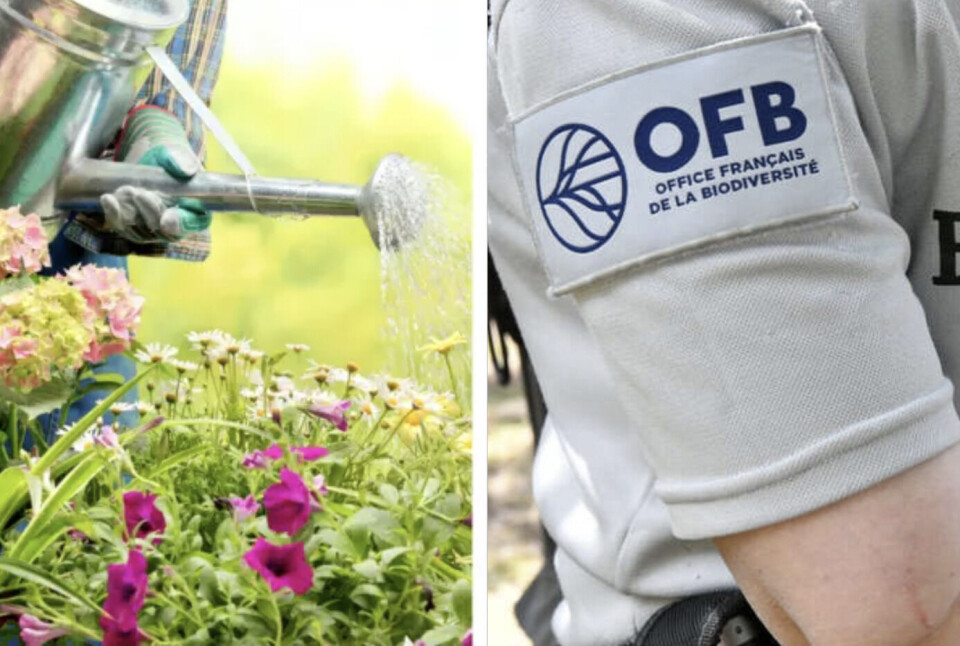-
Funeral held in Normandy for last Native American soldier to survive D-Day landings
Charles Norman Shay was among first to land on Omaha beach and a recipient of Silver Star and Legion of Honour medals
-
Visual: how healthy do French people think they are?
Progress in smoking rates but more than one in five people polled say they feel they drink excessively
-
Lost cat reunited with French family after 11 years thanks to identification tattoo
Shelter discovered injured elderly cat had identification tattoo which helped to track down previous owners
French homes subject to drought rule checks
People caught breaking rules on water usage can be fined €1,500, rising to €3,000 for repeat offences

[Article updated on August 3 at 13:30 with further information about the impact of the drought on agricultural land.]
French authorities have carried out 4,000 checks related to drought restriction rules since May, the Office français de la biodiversité (OFB) has reported.
Of these checks, 400 have resulted in ‘procedures’, which could be anything from an official warning to a fine.
Many of the checks are likely to have been on larger-scale businesses, factories or farms, but many others were related to private homes.
Currently, every department in France métropolitaine now has at least some communes on one of the four levels of drought alert. These levels range from ‘vigilance’ to ‘crisis’, and different rules are in place depending on the level.
At the lowest level, authorities will simply try to inform the public about the dangers of drought and ask them to try to cut down on water usage. At the highest level, strict bans on watering grass or plants, filling swimming pools, washing cars, etc. are introduced.
Read more: Vigilance, alert, crisis: what France’s four drought warnings mean
Read more: Drought map update: See the French departments with water restrictions
Loïc Obled, head of the ‘police, knowledge and expertise’ department of the OFB, said that checks will be ongoing this summer as the weather forecast shows that water shortages will continue.
“There are indeed many controls at the moment and we are doing more and more,” he told Franceinfo on Tuesday (August 2).
“We carried out about 500 controls in May, 2,000 controls last week and we dedicated the week that has just passed to a major national education and control operation.”
He said that fines for an individual are set at €1,500 or €3,000 for repeat offences. For businesses, this fine can go up to €7,000.
Read more: What happens if you break French water restriction rules by accident?
But he admitted that it is not possible to monitor everyone and be everywhere.
“We have about 15 people in each department.
“Every department is different so we have a differentiated strategy.
“We try to prioritise according to the importance of the issues at stake. It can be water for domestic use, for collective use, for industrial use or for agricultural irrigation. As a general rule, these are things that are fairly easy to see.”
Read more: South-west France residents cannot water gardens for three months
But he said that his team placed more importance on informing the population about the rules, rather than resorting to fines or legal procedures.
“We try to announce our checks in advance, to be visible on the ground.
“When we see that there is an offence, in agreement with the public prosecutor, we can either educate and inform the person or, when people are a bit less cooperative, proceed with a fine.”
Last month was the driest July in France since records began in 1959, France’s Minister for Ecological Transition, Christophe Béchu, has confirmed.
It is linked to soaring temperatures which have led to three heatwaves being declared this since June.
Read more: France set for its third heatwave of the year this week
Farmers struggle with restrictions
Some farmers have risked continuing to irrigate their fields despite restrictions, with one telling France Bleu Loire Océan: "I need to irrigate if I want to have food for my cows."
Another told France Bleu Poitou that he has already been fined several times, but that he must water his sunflowers or they will be spoiled.
Farmers in Haute-Saône have appealed to the government for greater aid.
Related articles
26 French departments on orange heat warning as temperatures peak
Wild boar approach homes in south of France out of hunger and thirst
























